“We want to show that refugees can contribute positively to society and should not be characterized as passive burdens dragging on public services.” — Aline Sara
According to CNN, as of April 2018 more than 5.6 million have fled Syria, and according to the UN High Commissioner for Refugees, more than 6 million people are displaced internally. Many of these refugees are educated and experienced individuals. However, they face unemployment and lack of direction as they resettle in a completely foreign environment. Without financial stability, they struggle to support their families and improve their livelihood.
Aline Sara is the Founder of NaTakallam (“We Speak” in Arabic), an organization which connects displaced Syrian and Iraqi people with language learners around the world for online Arabic lessons. On the surface, this teaching support system provides Arabic language learners the opportunity to practice their Arabic at an affordable price. In return, their refugee teachers can earn much needed income. However, as we discovered in our interview with Aline Sara, during the online language lessons there is other intercultural learning taking place.
The Global Search for Education is pleased to welcome Aline Sara to learn more about NaTakallam and bridging cultures through a computer screen.
“Our algorithm ensures that users are matched with someone based on their specific schedule, level, and interests.” — Aline Sara
Aline, millions of Syrians have fled violence and repression. How is the civil war affecting families and why does the NaTakallam initiative plan offer a sustainable solution?
Many forcibly displaced families end up in under-served camps or urban areas with no legal recourse to work. The 1% of refugees that have been resettled often struggle due to meager stipends, language barriers, and stigma. In countries like Jordan, Lebanon and Turkey, existing employment initiatives are not sustainable and do not give agency.
For example, Syrian refugees in Lebanon, Jordan, Turkey, Greece and other places are simply not given work permits and never will be—even though millions of them are highly educated. This represents a tremendous waste of human capital. These individuals need dignifying income sources to avoid falling into depression, poverty, and despair.
NaTakallam leverages the global gig economy and accessible technology to transcend borders and generate income. The platform offers a gainful income opportunity to displaced people who face restrictive labor policies in their country of resettlement. It is also creating conversations and bridging cultures today between countries, and between individuals who are far from conflict and those who live and breathe it.
We need solutions for the refugee crisis that can work for all parties. Why is it important we support these refugees? How does your organization deal with criticism about refugees?
Many refugees are highly trained dentists, artists, engineers, teachers, and others who’ve been robbed of their careers because of conflict. We want to show that refugees can contribute positively to society and should not be characterized as passive burdens dragging on public services.
Not only do we help refugees to develop professional experience and marketable soft skills, but we are focused on giving them skills that are in high demand. In places like Iraq, the refugees we work with use NaTakallam to support themselves while they participate in a coding training program.
It is of course difficult to hear criticism that is founded on false narratives and inaccurate perceptions of who refugees are. To deal with criticism, we engage extensively with our users, partners, and clients. Our communications and social media are always geared towards highlighting positive stories about refugees to change the outside perception.
“There is a need for emotional learning and openness to the world through language. There is also nothing more powerful sometimes than a simply conversation.” — Aline Sara
Can you speak about your curriculum? How has technology helped your initiative thrive? What about those without access to technology?
Everything is designed to be flexible, affordable, and individualized. Our algorithm ensures that users are matched with someone based on their specific schedule, level, and interests. The digital platform includes functions that enable users to indicate preferences and availability, view profiles, book sessions, make payments, and provide feedback.
Many displaced persons have smartphones and remain digitally connected through Internet connections. Thus, by making use of popular mass communication applications, NaTakallam’s technology is both accessible and completely free for its beneficiaries. Once hired, conversation partners interact with users and NaTakallam staff via email, Skype or WhatsApp to hold conversation sessions.
For those without access to this technology, we do everything we can to work with them. We are currently in discussions with certain tech companies to find a way to ensure that our conversation partners always have the technology they need to participate in NaTakallam sessions.
What’s your target demographic and how student-centered is your approach?
In the immediate future, our target customers for basic conversation sessions fall under 3 categories: current Arabic students, previous Arabic learners, and Arab diaspora looking to strengthen their Arabic. However, we are also expanding to other languages. Increasingly, we are focusing on our academic and institutional partnerships. Our university partnerships include schools like NYU, Duke, Tufts, and Boston College. On the institutional side, NGOs, venture philanthropists, and businesses help extend our network and spread the word.
NaTakallam sessions have taken place in more than 50 schools – and in each case, we work directly with teachers and educators to ensure that each classroom experience is tailored to the students’ needs. We give potential students a variety of options to choose from, and many places to indicate any preferences or interests they might have.
“Discussing with refugees fosters empathy and cultural understanding with each conversation, allowing children to ask tough questions and get candid answers.” — Aline Sara
“Diversity: the art of thinking independently together.” What do you believe is the role of education in a world that’s more interconnected than ever? Can you speak specifically about what children can learn from refugee children? Does learning together change the dialogue?
We are living in an era of increasing division with media often painting an inaccurate and destructive image of individuals fleeing for their lives. Therefore, we must develop receptive communities around the world and enhance cultural understanding. There is a need for emotional learning and openness to the world through language. There is also nothing more powerful sometimes than a simple conversation.
Access to refugees through virtual gatherings is an invaluable resource for students. They can practice their linguistic conversational skills, but also engage in unique cross-cultural exchanges. Discussing with refugees fosters empathy and cultural understanding with each conversation, allowing children to ask tough questions and get candid answers. In return, we encourage global citizenship and leadership in children so that they can grow up with the desire to alleviate the problem, rather than further perpetuate inaccurate stereotypes.
Where do you see your platform five years from now? What’s the vision and how scalable do you believe it is?
Five years from now, we hope to offer almost every language spoken by refugee communities and become a well-known service for schools and universities around the world. We hope to operate regularly in over 500 schools and 200 universities, while working with over 400 displaced persons.
NaTakallam aims to revolutionize the language industry while humanizing the narrative around refugees. Having witnessed frustration and inefficiency in the humanitarian sector, I believe that the startup community can be mobilized to share best practices with the public, private, and NGO sectors. As educators, we have a responsibility to reveal the truth about the displaced by creating access to more traditional forms of language education.
C. M. Rubin and Aline Sara
Join me and globally renowned thought leaders including Sir Michael Barber (UK), Dr. Michael Block (U.S.), Dr. Leon Botstein (U.S.), Professor Clay Christensen (U.S.), Dr. Linda Darling-Hammond (U.S.), Dr. MadhavChavan (India), Charles Fadel (U.S.), Professor Michael Fullan (Canada), Professor Howard Gardner (U.S.), Professor Andy Hargreaves (U.S.), Professor Yvonne Hellman (The Netherlands), Professor Kristin Helstad (Norway), Jean Hendrickson (U.S.), Professor Rose Hipkins (New Zealand), Professor Cornelia Hoogland (Canada), Honourable Jeff Johnson (Canada), Mme. Chantal Kaufmann (Belgium), Dr. EijaKauppinen (Finland), State Secretary TapioKosunen (Finland), Professor Dominique Lafontaine (Belgium), Professor Hugh Lauder (UK), Lord Ken Macdonald (UK), Professor Geoff Masters (Australia), Professor Barry McGaw (Australia), Shiv Nadar (India), Professor R. Natarajan (India), Dr. Pak Tee Ng (Singapore), Dr. Denise Pope (US), Sridhar Rajagopalan (India), Dr. Diane Ravitch (U.S.), Richard Wilson Riley (U.S.), Sir Ken Robinson (UK), Professor Pasi Sahlberg (Finland), Professor Manabu Sato (Japan), Andreas Schleicher (PISA, OECD), Dr. Anthony Seldon (UK), Dr. David Shaffer (U.S.), Dr. Kirsten Sivesind (Norway), Chancellor Stephen Spahn (U.S.), Yves Theze (LyceeFrancais U.S.), Professor Charles Ungerleider (Canada), Professor Tony Wagner (U.S.), Sir David Watson (UK), Professor Dylan Wiliam (UK), Dr. Mark Wormald (UK), Professor Theo Wubbels (The Netherlands), Professor Michael Young (UK), and Professor Minxuan Zhang (China) as they explore the big picture education questions that all nations face today.
The Global Search for Education Community Page
C. M. Rubin is the author of two widely read online series for which she received a 2011 Upton Sinclair award, “The Global Search for Education” and “How Will We Read?” She is also the author of three bestselling books, including The Real Alice in Wonderland, is the publisher of CMRubinWorld and is a Disruptor Foundation Fellow.
Follow C. M. Rubin on Twitter: www.twitter.com/@cmrubinworld

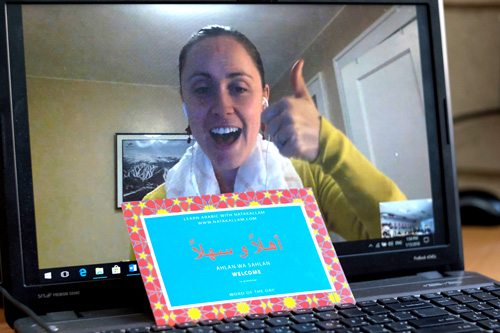
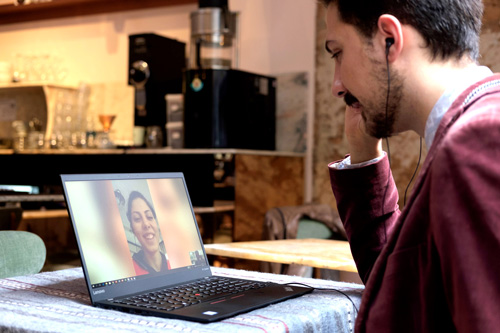
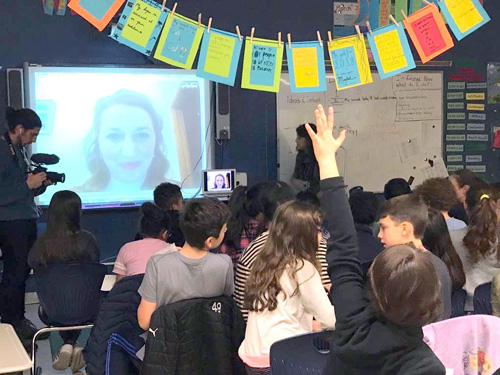
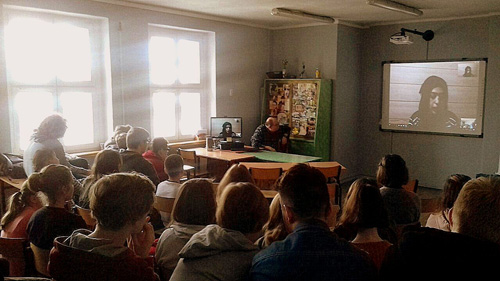
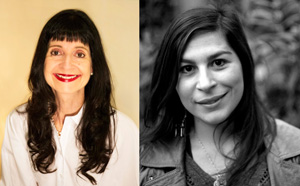
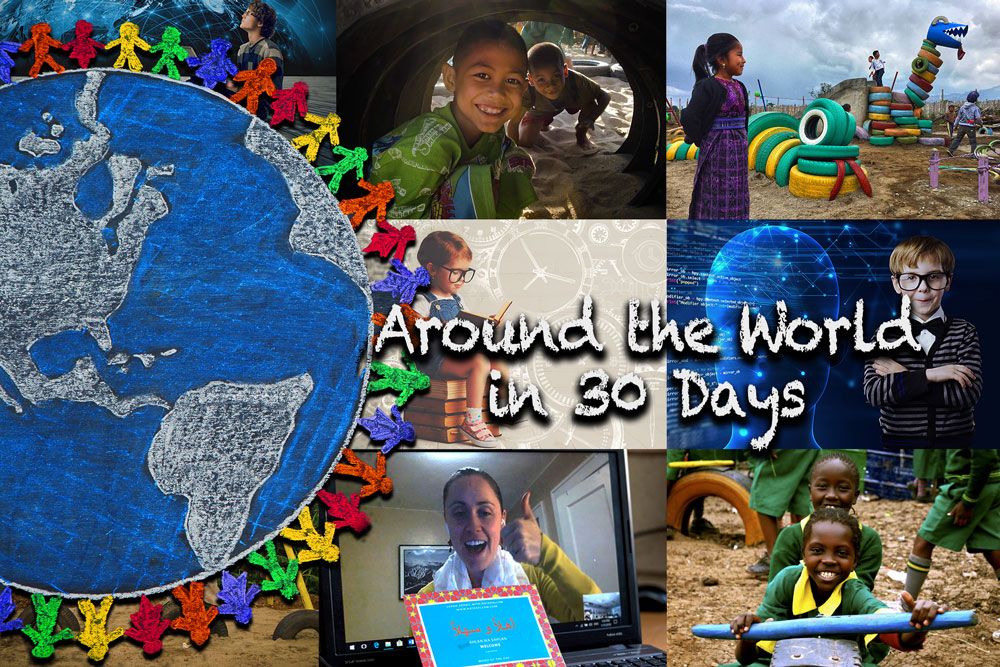



Recent Comments